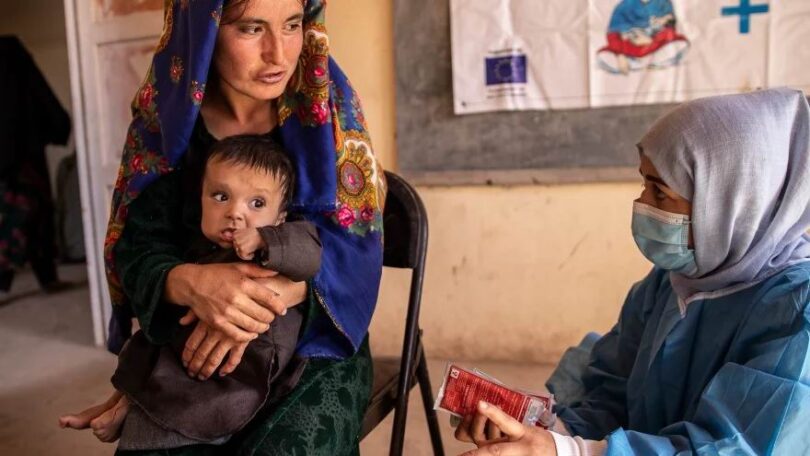KABUL (Khaama Press): Following the ban issued by the Taliban regime nearly two months ago restricting women from working for NGOs, a considerable number of women and children are mission out on life-saving aid during these difficult times, according to Save the Children.
On December 24, 2022, the Islamic Emirate authorities of Afghanistan issued a decree which restricted women from working with non-governmental aid organizations. Besides the move being criticized by the people of Afghanistan, humanitarian aid organizations, and the international community, it has adversely affected the living conditions of women and children, the most vulnerable segments of society.
In response to the gender-based restrictions, many aid organizations immediately ceased their life-saving operations across the country. Save the Children, for instance, in a statement said that without female employees, the delivery of its much-needed services to communities is impossible because it’s women who can truly understand the difficulties of women, not men.
Similarly, other humanitarian aid organizations took even stronger stances regarding the ban on women staff of NGOs, however, nothing has changed for the better so far.
A new assessment by the United Nations Women indicates that 93% of surveyed organizations working in Afghanistan said the ban is impacting their ability to access women with humanitarian assistance.
Many widowed women who lost their husbands and daily breadwinners in the prolonged instability in Afghanistan over the past years now face serious problems to receive aid.
They are rejected simply for not having a male guardian “Mahram” to escort them when leaving home – a requirement now widely enforced by the Taliban regime.
“Humanitarian aid is now mainly delivered by men. If we go and ask for assistance, community elders ask us to send a man to collect the aid. They won’t let us take it because we are women. I don’t know why they won’t give us the aid. We have tried several times,” a widowed woman said.







